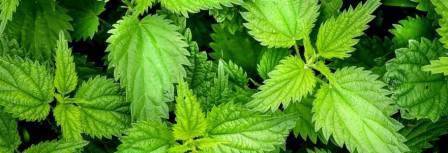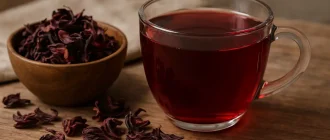Pregnancy is a time of great joy and anticipation, but it is also a period when expectant mothers have many questions about what foods and drinks they should avoid. One such query is whether nettle tea is safe to consume during pregnancy.
We’ll explore the potential risks and benefits of nettle tea during pregnancy, so that expectant mothers can make informed choices about this popular herbal beverage.
Introduction to Nettle Tea and Pregnancy
Nettle tea is a popular herbal remedy among Western herbalists for its many benefits, including the treatment of inflammatory disorders like osteoarthritis and asthma. However, when it comes to pregnancy, caution is advised.
While nettle tea is high in nutrients and may help combat fatigue, its effects on pregnancy are largely unknown. Certain studies have shown that nettle tea consumption may stimulate the uterus and contribute to contractions and miscarriage.
As such, it is recommended that pregnant women only consume dried nettle from reliable sources in the later stages of pregnancy, and only in small amounts.
Alternative teas, considered safe for pregnancy, may be a better option.
Potential Benefits of Nettle Tea for Pregnant Women
- Nettle tea is high in vitamins A, C, K, and B vitamins, as well as minerals such as iron, magnesium, calcium, phosphorus, potassium, and sodium.
- Nettle tea has anti-inflammatory properties, which can reduce pain associated with conditions like arthritis.
- Nettle tea may reduce symptoms of allergic rhinitis, such as sneezing and sniffling.
- Some people believe that nettle tea can help with lactation, although evidence is inconclusive.
- Nettle tea has been used to treat hypertension, speed up wound healing, and reduce blood sugar levels.
- Nettle tea may help to stop bleeding during and after an episiotomy repair.
- Some women drink nettle tea during pregnancy for its potential benefits, but it is important to speak with a healthcare provider before doing so.
Cautionary Notes for Pregnant Women
When it comes to consuming nettle tea during pregnancy, caution should be exercised by pregnant women. While nettle tea is generally considered safe, some studies have shown that it may affect menstrual cycles and contribute to miscarriage due to its potential to trigger uterine contractions. To avoid any potential risks, it is advisable for pregnant women to consult with their obstetrician before drinking nettle tea, especially early in their pregnancy. Fresh nettle is known to have a uterine stimulant action that could cause contractions leading to abortions. It is recommended to consume only 3 to 4 tablespoons of dried nettle towards the later stages of pregnancy from a reliable source.
Risks of Drinking Nettle Tea during Pregnancy
Drinking nettle tea during pregnancy can pose some risks to both the mother and the baby. As a result, pregnant women should consume nettle tea with caution. Nettle leaves have uterine stimulant action, which can cause contractions in the uterine muscles, leading to abortion. Therefore, fresh nettle leaves are contraindicated in pregnancy, especially in the early stages and even if you are planning to conceive.

Although nettle leaves have many health benefits, there isn’t enough scientific evidence to determine whether nettle tea is completely safe for pregnant women or not. Consequently, it is important to speak with your healthcare provider before consuming nettle tea. Choose dried nettle leaves from a reliable source and consume it only in moderation in later pregnancy, after the first trimester.
Proper Ways to Consume Nettle Tea During Pregnancy
When it comes to consuming nettle tea during pregnancy, it is essential to do so in moderation and using the right methods. Pregnant women should only consume 3 to 4 tablespoons of dried nettle in the later stages of pregnancy, in the form of juice or tea. It is also advisable to use only the ‘dried nettle’ instead of fresh nettle, which can cause contractions in the uterine muscles that may lead to abortions.
Additionally, pregnant women should only consume nettle tea produced by reliable sources to ensure its safety. With these precautions in mind, nettle tea can be enjoyed for its benefits during pregnancy, such as combating fatigue and improving vein elasticity.
Alternative Teas Recommended for Pregnancy

Alternative teas are gaining popularity among pregnant women who want to avoid caffeine and improve their overall health. Some teas are safe during pregnancy, and they offer many benefits, including easing nausea, regulating blood sugar levels, and promoting relaxation. Here are nine alternative teas recommended for pregnant women:
- Ginger tea,
- Peppermint tea,
- Rooibos tea,
- Lemon balm tea,
- Chamomile tea,
- Raspberry leaf tea,
- Dandelion tea,
- Hibiscus tea,
- and Fennel tea.
However, pregnant women should avoid teas that contain herbs and ingredients that are harmful during pregnancy, including black cohosh, pennyroyal, and senna. It’s important to check with your healthcare provider before drinking any type of tea during pregnancy.
About the Author
Reyus Mammadli is the author of this health blog since 2008. With a background in medical and biotechnical devices, he has over 15 years of experience working with medical literature and expert guidelines from WHO, CDC, Mayo Clinic, and others. His goal is to present clear, accurate health information for everyday readers — not as a substitute for medical advice.






